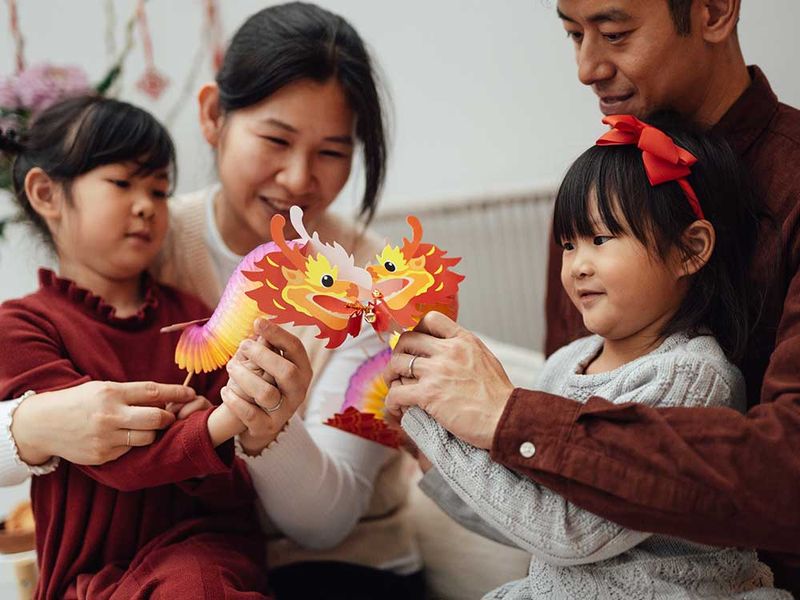Marriage has long been a cornerstone of human societies, providing a framework for stability and continuity. Despite changing cultural norms, marriage remains pivotal in fostering emotional security, financial responsibility, and social cohesion.
This blog post explores eighteen compelling reasons why marriage continues to be essential for a stronger and more stable society, touching upon emotional, financial, and social dimensions beyond just romantic love.
1. It Creates Long-term Emotional Accountability
Emotional accountability is a cornerstone of marriage. In this bond, partners learn to express feelings openly, creating a safe space for vulnerability. This openness fosters trust, allowing both individuals to rely on each other emotionally. Over time, this emotional accountability strengthens the relationship, making it more resilient to external pressures.
Marriage provides a structured environment where partners are encouraged to communicate and resolve conflicts. This ongoing dialogue nurtures understanding and empathy, essential ingredients for a lasting emotional connection. Through emotional accountability, couples build a foundation of trust and love that supports them through life’s challenges.
2. Encourages Shared Financial Responsibility
In marriage, financial responsibilities are shared, promoting teamwork and cooperation. Couples often combine resources, setting joint financial goals and creating budgets that reflect their shared priorities. This collaboration helps in building a secure financial future and reducing individual financial stress.
By working together, couples can achieve milestones such as buying a home or planning for retirement. Shared financial responsibility also teaches valuable lessons in money management and planning.
The act of pooling resources fosters a sense of unity and commitment, reinforcing the partnership and building trust. This financial alliance is a powerful tool in creating a stable and prosperous life together.
3. Builds a Stronger Sense of Family Legacy
Marriage plays a pivotal role in establishing and continuing a family legacy. Through marriage, traditions, values, and histories are passed down to future generations. This continuity provides a sense of belonging and identity, connecting individuals to their heritage.
A shared family legacy also instills pride and responsibility. Couples work together to nurture their family’s unique traditions, fostering a sense of unity and purpose.
By preserving these legacies, marriage strengthens familial bonds and enriches the lives of family members. In this way, marriage serves as a bridge between past, present, and future, creating a lasting impact on society.
4. Increases Stability for Children
Marriage provides a stable environment for raising children. Within a committed partnership, children experience consistent love and support, essential for their development. This stability allows children to thrive, both emotionally and academically.
Parents in a strong marriage are often better equipped to provide guidance and discipline, creating a nurturing environment. This stability also extends to the community, as children from stable households contribute positively to society.
A strong marital foundation offers children a sense of security, helping them grow into well-adjusted adults. Thus, marriage plays a crucial role in fostering the next generation of responsible and caring individuals.
5. Offers Emotional Support Through Life’s Challenges
Life’s challenges are inevitable, and having a partner to lean on makes them more manageable. Marriage offers a built-in support system where spouses can share burdens and celebrate triumphs together. This emotional support is vital in navigating life’s unpredictable nature.
In times of stress, a loving partner provides encouragement and reassurance. This unwavering support strengthens the bond between partners, enhancing resilience and emotional well-being.
By facing challenges together, couples grow closer, turning adversity into opportunities for deeper connection. Marriage thus serves as a sanctuary of comfort and strength, making life’s journey more fulfilling.
6. Encourages Planning and Long-term Thinking
Marriage encourages couples to think long-term and plan for the future. Together, partners set goals, whether it’s saving for a child’s education or planning a dream vacation. This forward-thinking approach cultivates a shared vision and purpose.
Long-term planning also involves preparing for retirement and healthcare needs. By discussing these topics, couples create a roadmap for their future, ensuring financial stability and peace of mind.
Thinking ahead fosters a sense of security and stability, as both partners work towards common goals. Marriage, therefore, becomes a collaborative journey of growth and preparation for life’s uncertainties.
7. Reduces Social Isolation
Being married often means having a partner to engage in social activities, significantly reducing feelings of isolation. Whether attending events or hosting gatherings, couples tend to be more socially active. This engagement helps in building networks and fostering community connections.
Marriage encourages participation in social events, providing opportunities to meet new people and cultivate friendships. This active social life not only enriches personal experiences but also contributes to overall mental well-being.
By sharing social experiences, couples strengthen their relationship and create a supportive community. Marriage thus acts as a catalyst for social interaction and community involvement.
8. Strengthens Community Ties
Marriage often strengthens community ties, as couples participate in local events and organizations. By engaging in community activities, couples build relationships with neighbors and contribute to the community’s well-being. This involvement fosters a sense of belonging and responsibility.
Through collaborative efforts, couples support local causes and initiatives, enhancing community life. This participation not only benefits the community but also enriches the couple’s relationship.
Stronger community ties lead to a more supportive and cohesive environment, where individuals feel connected and valued. Marriage, therefore, plays a vital role in creating vibrant and resilient communities.
9. Often Leads to Healthier Habits
Marriage often inspires healthier lifestyle choices. Couples tend to support each other’s well-being, encouraging exercise, balanced diets, and regular medical check-ups. This mutual commitment to health leads to better physical and mental well-being.
Sharing health goals and activities strengthens the marital bond, as partners motivate each other to maintain healthy habits. Whether it’s cooking nutritious meals together or engaging in physical activities, this shared focus on health enhances quality of life.
By prioritizing health, couples not only improve their own lives but also set a positive example for others. Marriage thus acts as a catalyst for healthier living and well-being.
10. Creates an Automatic Support System
Marriage provides an automatic support system, where partners share responsibilities and rely on each other for assistance. This built-in network of support fosters a sense of teamwork and collaboration, essential for managing life’s daily demands.
In this partnership, couples divide tasks and share burdens, making life more manageable. This support extends beyond physical tasks to include emotional and mental encouragement.
By supporting each other, couples create a harmonious environment where both individuals can thrive. Marriage, therefore, offers a reliable and comforting support system that enhances personal and relational growth.
11. Reduces Emotional Decision Fatigue
Marriage often reduces decision fatigue by sharing the emotional load of decision-making. In a supportive partnership, couples consult each other on important matters, combining their strengths to make well-informed choices. This collaboration alleviates stress and enhances confidence in decisions.
By discussing options and sharing perspectives, partners create a balanced approach to problem-solving. This teamwork not only simplifies decision-making but also strengthens the marital bond.
The ability to rely on a partner for guidance and support reduces the emotional burden of making decisions alone. Marriage thus provides a comforting space where choices are shared, leading to more thoughtful outcomes.
12. Helps Distribute Life Burdens More Evenly
Life’s burdens become lighter when shared between partners. In marriage, responsibilities are divided, allowing for a more balanced and manageable lifestyle. This distribution of tasks ensures that no one partner feels overwhelmed, promoting harmony and understanding.
By working together, couples tackle challenges and find solutions, reinforcing their bond. This collaboration fosters a sense of equality and respect, as both partners contribute to the partnership’s success.
Through balanced responsibilities, marriage creates a nurturing environment where both individuals can thrive. This shared approach to life’s burdens not only strengthens the relationship but also enhances overall well-being.
13. Builds Emotional Resilience Through Consistency
Consistency in marriage builds emotional resilience. Through shared experiences and routines, couples develop a strong foundation that withstands life’s challenges. This stability fosters resilience, allowing partners to face adversity with confidence and strength.
Marriage provides a reliable environment where both individuals can grow emotionally. This consistent support enhances mental well-being, making it easier to navigate life’s ups and downs.
By weathering storms together, couples strengthen their emotional bond, turning challenges into opportunities for growth. Marriage thus becomes a powerful force for building resilience and fostering personal development.
14. Can Reduce Anxiety About the Future
Marriage can alleviate anxiety about the future by providing a stable and supportive partnership. Together, couples plan for the future, setting goals and preparing for uncertainties. This proactive approach reduces stress and fosters a sense of security.
By sharing dreams and aspirations, partners create a vision for their future that is both comforting and motivating. This shared planning reduces worry and builds confidence in facing life’s unknowns.
With a partner by their side, individuals feel more equipped to handle challenges and uncertainties. Marriage, therefore, becomes a source of comfort and assurance, reducing anxiety about what lies ahead.
15. Models Commitment for Future Generations
Marriage serves as a model of commitment for future generations. By observing their parents’ partnership, children learn the values of dedication, love, and respect. This example shapes their understanding of relationships and inspires them to seek similar bonds.
A strong marriage provides a blueprint for building healthy and fulfilling relationships. Parents demonstrate the importance of working through challenges and celebrating successes together.
This modeling of commitment instills confidence in children, empowering them to pursue meaningful connections. Marriage thus plays a crucial role in shaping the future by passing down values and principles of lasting partnerships.
16. Increases Emotional Intelligence Through Shared Growth
Marriage often leads to increased emotional intelligence as partners grow together. Through shared experiences, couples learn to navigate emotions, enhancing their understanding of themselves and each other. This growth fosters empathy and communication, key components of emotional intelligence.
By working through challenges, partners develop skills in conflict resolution and emotional regulation. This shared growth enriches the relationship and enhances overall well-being.
As couples nurture their emotional intelligence, they create a more harmonious partnership. Marriage thus becomes a journey of continuous learning and self-discovery, promoting emotional maturity and connection.
17. Creates Space for Deeper Vulnerability
Marriage creates a space where deeper vulnerability is embraced. In a committed partnership, individuals feel safe to share their innermost thoughts and feelings. This openness fosters trust and intimacy, strengthening the marital bond.
By being vulnerable, couples deepen their understanding of each other, creating a connection that transcends surface-level interactions. This emotional depth enriches the relationship, making it more fulfilling and resilient.
Embracing vulnerability allows partners to grow closer, turning challenges into opportunities for greater connection. Marriage thus provides a sanctuary for authenticity and genuine intimacy, enhancing personal and relational development.
18. Helps Individuals Feel Part of Something Bigger
Marriage helps individuals feel part of something bigger than themselves. By joining lives, partners create a shared vision and purpose, contributing to their family’s and community’s well-being. This connection fosters a sense of belonging and fulfillment.
Through marriage, individuals engage in shared goals and responsibilities, enhancing their sense of identity. This collective effort not only strengthens the marital bond but also enriches personal experiences.
Feeling part of something larger provides meaning and motivation, inspiring individuals to contribute positively to society. Marriage thus becomes a vehicle for creating a meaningful life and fostering a sense of purpose.



















